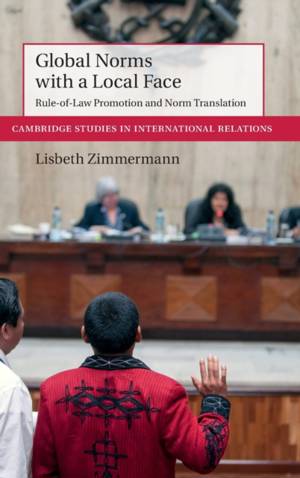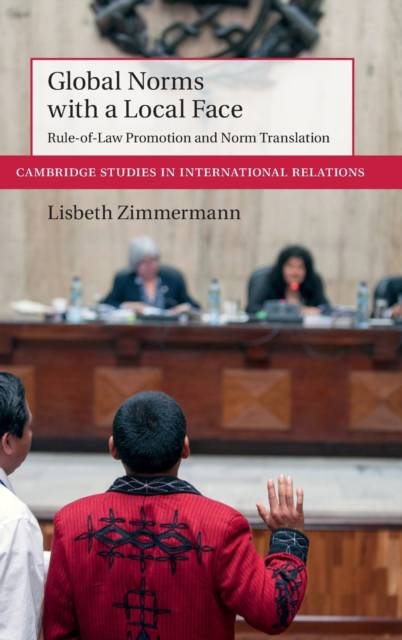
- Afhalen na 1 uur in een winkel met voorraad
- Gratis thuislevering in België vanaf € 30
- Ruim aanbod met 7 miljoen producten
- Afhalen na 1 uur in een winkel met voorraad
- Gratis thuislevering in België vanaf € 30
- Ruim aanbod met 7 miljoen producten
Zoeken
€ 183,45
+ 366 punten
Omschrijving
To what extent are global rule-of-law norms, which external actors promote in post-conflict states, localized? Who decides whether global standards or local particularities prevail? This book offers a new approach to the debate about how the dilemma between the diffusion of global norms and their localization is dealt with in global politics. Studying the promotion of children's rights, access to public information, and an international commission against impunity in Guatemala, Lisbeth Zimmermann demonstrates that rule-of-law promotion triggers domestic contestation and thereby changes the approach taken by external actors, and ultimately the manner in which global norms are translated. However, the leeway in local translation is determined by the precision of global norms. Based on an innovative theoretical approach and an in-depth study of rule-of-law translation, Zimmermann argues for a shift in norm promotion from context sensitivity to democratic appropriation, speaking to scholars of international relations, peacebuilding, democratization studies, international law, and political theory.
Specificaties
Betrokkenen
- Auteur(s):
- Uitgeverij:
Inhoud
- Aantal bladzijden:
- 314
- Taal:
- Engels
- Reeks:
- Reeksnummer:
- nr. 143
Eigenschappen
- Productcode (EAN):
- 9781107172043
- Verschijningsdatum:
- 3/08/2017
- Uitvoering:
- Hardcover
- Formaat:
- Genaaid
- Afmetingen:
- 166 mm x 238 mm
- Gewicht:
- 566 g

Alleen bij Standaard Boekhandel
+ 366 punten op je klantenkaart van Standaard Boekhandel
Beoordelingen
We publiceren alleen reviews die voldoen aan de voorwaarden voor reviews. Bekijk onze voorwaarden voor reviews.








